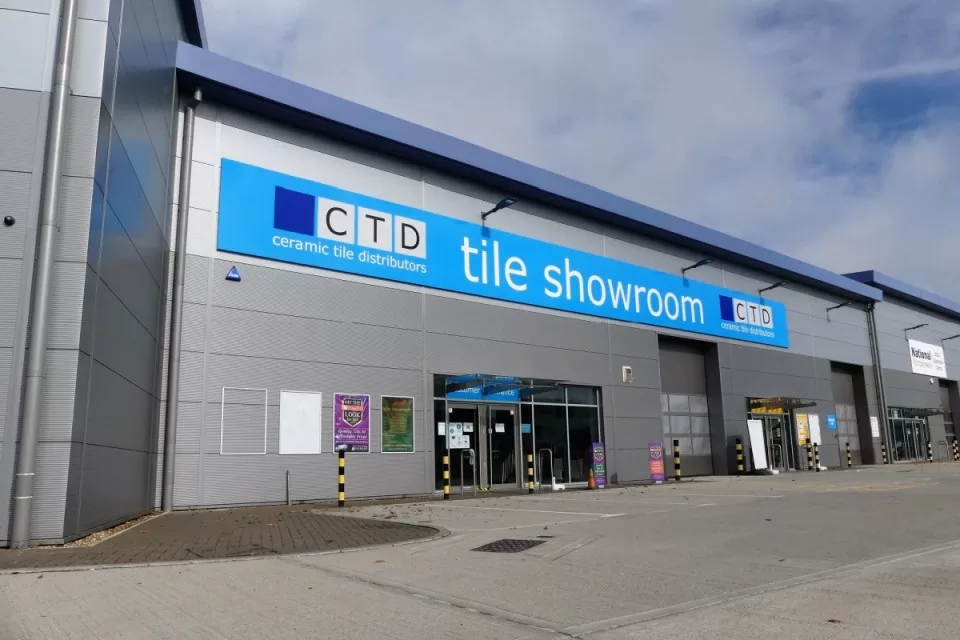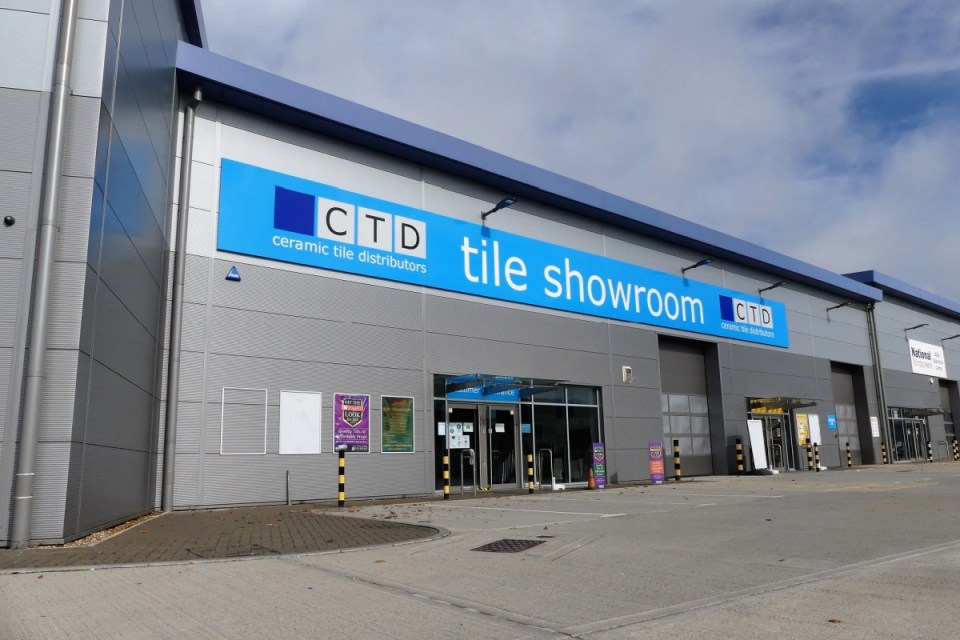RESCUE deals have been struck to save 23 former CTD Tiles stores after the supplier went bust last month.
CTD Tiles fell into administration in August after coming under pressure from a downturn in the home improvement sector.
It ran 86 stores across the UK and employed 425 staff before its collapse.
Administrators swiftly struck a deal for rival Topps Tiles to buy 30 stores, CTD’s brands, intellectual property, stock and two distribution sites for £9million.
However, 56 stores were shut and 268 jobs at the business were lost.
On Wednesday, the administrators at Interpath Advisory confirmed they have secured two further deals which will allow 23 former CTD stores to reopen.
Stiled Limited, which owns the Tile Giant and Tile Choice brands and operates 49 stores across the UK, is to take on 16 former CTD Tiles stores and associated stock.
Separately, Kajaria-UKP Limited, a UK joint venture with New Delhi-based tile manufacturer Kajaria Ceramics, agreed to save seven stores and take on associated stock.
Brands include CTD Tiles, CTD Trade and CTD Architectural Tiles, with total annual revenue of around £75million.
The acquired stores and other assets will continue to trade under the CTD brand name.
James Lumb, managing director at Interpath and joint administrator, said: “We are pleased to have reached these agreements which pave the way for a further 23 stores to reopen under new ownership, and which we hope will create a significant number of new employment opportunities for those former workers who were impacted by redundancy, as well as others in the local communities.
“We’d like to thank all those stakeholders who have helped to get these agreements over the line in such a short timeframe, and wish both Stiled and Kajaria-UKP all the very best of luck for the future.”
Matt Williams, chief executive of Stiled, said: “We are delighted to reopen these stores that had been closed.
“Our focus will be working to establish these locations as Tile Giant and Tile Choice stores with new colleagues to provide market-leading tile ranges.”
Viren Mundra, chief executive of Kajaria-UKP, said: “Kajaria is the seventh largest tile producer in the world, selling premium tiles in over 35 countries.
“We opened the UK’s largest tile showroom in London earlier this year.
“This is the next step in our UK expansion and we look forward to serving customers from these seven new locations.”
The 16 sites rescued by Stiled are:
Aintree, Merseyside
Basildon, Essex
Blackpool, Lancashire
Cambridge Central, Cambridgeshire
Chelmsford, Essex
Cricklewood, Greater London
Dundee, Scotland
Eastbourne, East Sussex
Exeter, Devon
Ipswich, Suffolk
Plymouth, Devon
Rochdale, Greater Manchester
Slough, Berkshire
Stirling, Scotland
Sutton Coldfield, Warwickshire
Whetstone, Leicestershire
CTD, which was acquired by former Body Shop owner Aurelius in 2022, supplies ceramic tiles to commercial and resident customers.
Other players in the tile sector, including Tile Giant, Tile Choice and Johnson Tiles, have also faced financial and trading difficulties in recent times.
The seven sites rescued by Kajaria are:
Brierley Park, Dudley, West Midlands
Chester, Cheshire
Colchester, Essex
Coventry, Warwickshire
Croydon, Greater London
Derby, Derbyshire
Northampton, Northamptonshire
What else is happening to homeware chains?
The news today follows a tricky time for home improvement chains, both large and small.
It comes as shoppers have been cutting back on spending following the pandemic.
Plus the recent turmoil in the housing market has meant that homeowners aren’t as focused on DIY projects as they once were.
Most recently, Carpetright has been bought in a rescue deal by rival Tapi but will shut the vast majority of stores and cut more than 1,000 jobs.
In the spring, Kingfisher, which owns both B&Q and Screwfix, revealed annual profits slumped by more than a quarter.
The company reported a 25.1% drop in underlying pre-tax profits to £568million for the year to January 31, 2024.
Window and door specialist Everest called in administrators in April leaving customers in the dark about their orders.
What does going into administration mean?
WHEN a company enters into administration, all control is passed to an appointed administrator.
The administrator has to leverage the company’s assets and business to repay creditors any outstanding debts.
Once a company enters administration, a “moratorium” is put in place which means no legal action can be taken against it.
Administrators write to your creditors and Companies House to say they’ve been appointed.
They try to stop the company from being liquidated (closing down), and if it can’t it pays as much of a company’s debts from its remaining assets.
The administrator has eight weeks to write a statement explaining what they plan to do to move the business forward.
This must be sent to creditors, employees and Companies House and invite them to approve or amend the plans at a meeting.
A Notice of Intention is used to inform concerning parties that a company intends to enter administration.
It is a physical document which is submitted to court, usually by directors aiming to prevent a company from being liquidated.
Like with a standard administration process, a Notice of Intention stops creditors from taking out any legal action over a company while they try and rectify the business.
Last year, the group had previously cautioned profits would slip after a 36% drop in pre-tax profits from £1billion to £611million in the 12 months to January 2023.
Rival Wickes, also reported a 31 per cent fall in profits to £52million on flat revenues of £1.55billion for 2023.
Windows and doors company Safestyle collapsed into administration in October last year.
The company has a manufacturing site in Wombwell, near Barnsley and 42 sales branches and depots across the country.
Do you have a money problem that needs sorting? Get in touch by emailing [email protected].
Plus, you can join our Sun Money Chats and Tips Facebook group to share your tips and stories

